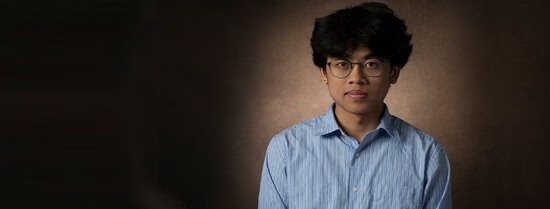What does this study entail?
The Sustainable Development Goals (SDGs) of the UN are challenging and ambitious. How can economics help to reach these goals? How to protect the natural richness of our planet while at the same time support economic development? How to decrease socio-economic inequalities in labour, housing or other markets without creating extensive bureaucracy or violating individual human rights? How to create a cost-effective public health system that divides the costs and benefits equally across society?
In this master specialisation, students are introduced to what sustainable development is and how economic systems can both support and hinder SDG’s.
Worldwide, multiple master programmes in economics delve into either environmental economics, urban economics, education economics, health economics or labour economics. For some societal issues, this single-perspective approach might be sufficient to analyse the causes and consequences. However, for many SDGs, a complex combination of knowledge is necessary to understand the challenges and develop policy interventions, considering both short- and long-term effects, the variety of intervention levels needed and the interconnectedness with other SDGs. This master specialisation combines these elements and thus is unique compared with other masters.
At the end of the course students are able to:
- Describe the complexity of the SDGs in terms of timeframes, levels of intervention and the intertwining with other SDGs
- Analyse the variety of economic perspectives necessary to understand the SDGs
- Have in-depth knowledge which economic policy possibilities are present to achieve the SDGs
- Analyse costs and benefits of possible economic policy interventions, including timing effects, levels of interventions and ripple-effects
Is this the right choice for you?
Are you motivated to contribute to a world where over nine billion people are living well within planetary boundaries? Do you think that proper economic analysis can add to reaching a sustainable future? Are you interested in combining knowledge from diverse economic specialisations and learn skills necessary to solve complex, societal issues? Do you find it motivating to combine scientific knowledge with expertise from external parties?
Factors that will help you to successfully complete our master’s programme Economics of Sustainability are:
- A fondness in developing in-depth and broad economic knowledge
- Enthusiasm in solving societal problems
- Finding it motivating to work from science with external experts who work daily on these issues
- A wish to develop your own analytical and professional skills, including working in teams
Why study Economics of Sustainability in Rotterdam?
The reason why we were able to build such a unique master programme is because Erasmus School of Economics has a large faculty of high-level experts, representing a wide set of economic specialisations. By combining their expertise, this faculty will provide you with the knowledge and skills to understand the complexity behind the SDGs.
Furthermore, thanks to the school’s leadership in providing economic expertise to external organisations, the programme will not only include our own academic experts but also experts working in policy development and implementation. Through guest lectures and project collaborations, you will meet representatives of ministries and other government branches, NGOs, and the corporate world who will show you how these complex issues manifest themselves in practice.
Finally, as the second largest city in the Netherlands and host of one of the world’s largest ports, Rotterdam offers an exciting and vibrant place to study economics but especially economics of sustainability. With sustainability high on the agendas of the university, the municipality, and the port, Rotterdam has become a buzzing hub for organisations and enterprises that produce innovative ideas for a more sustainable city and world. Both on and off campus, you will have the possibility to explore these initiatives and experience first-hand what it means to work towards a more sustainable future.


